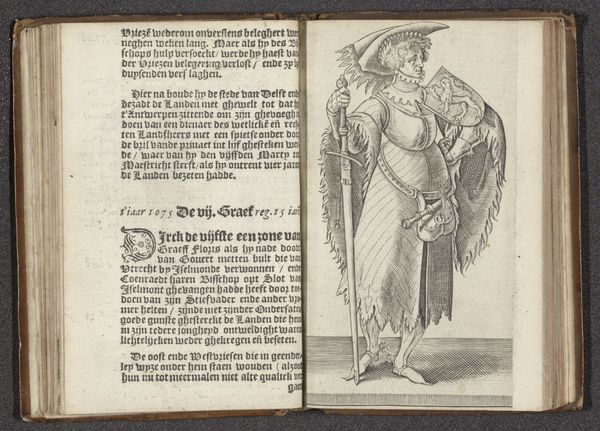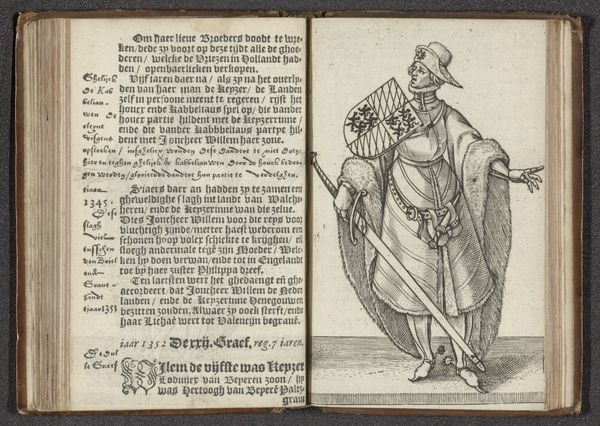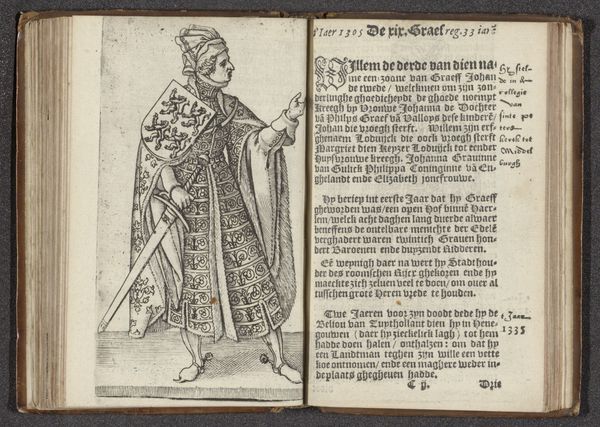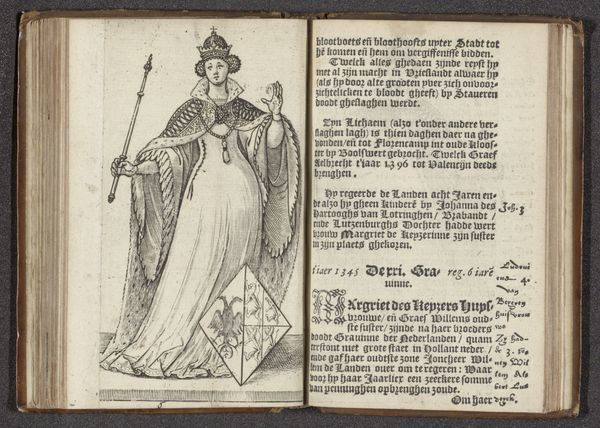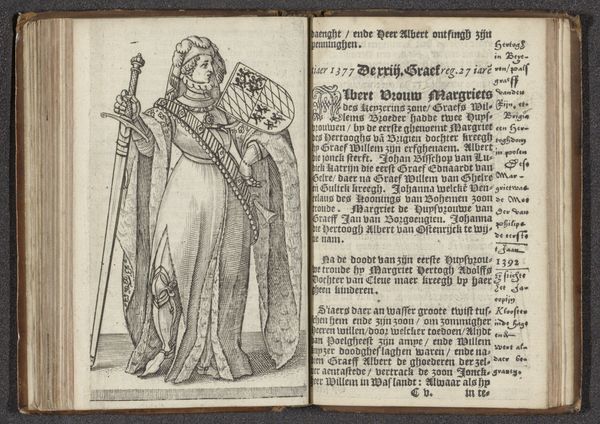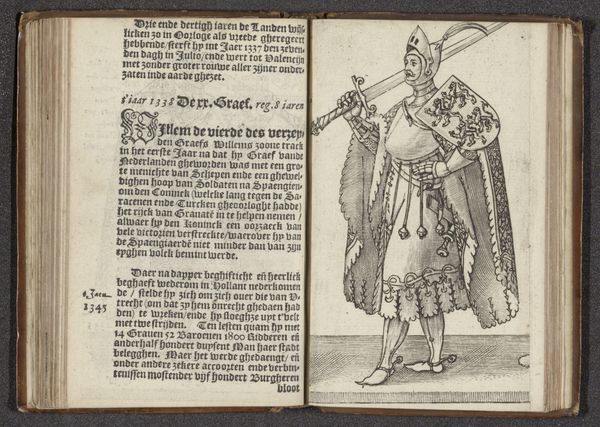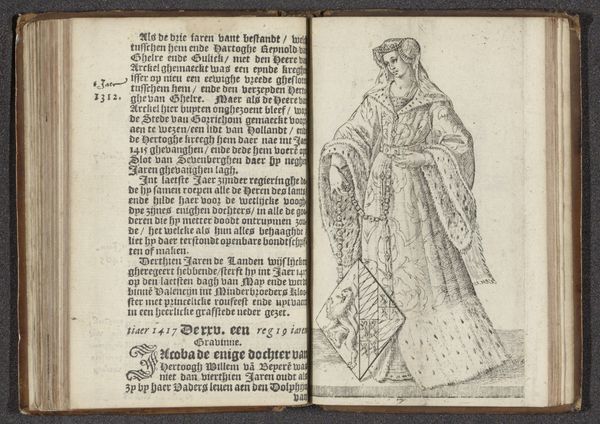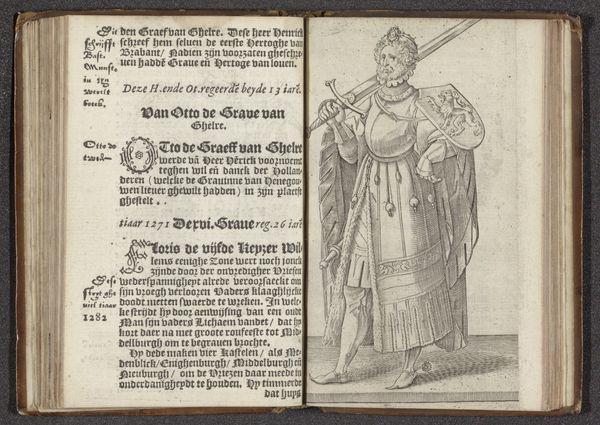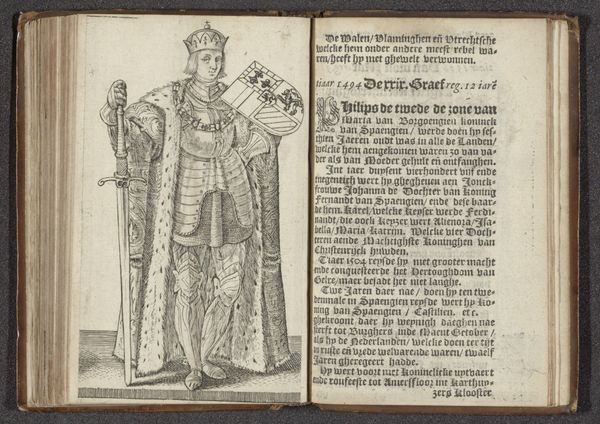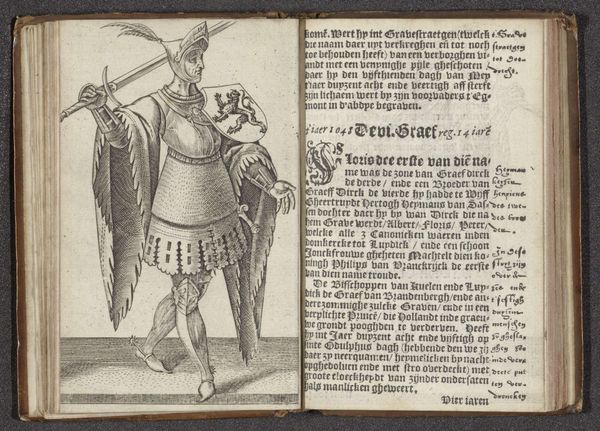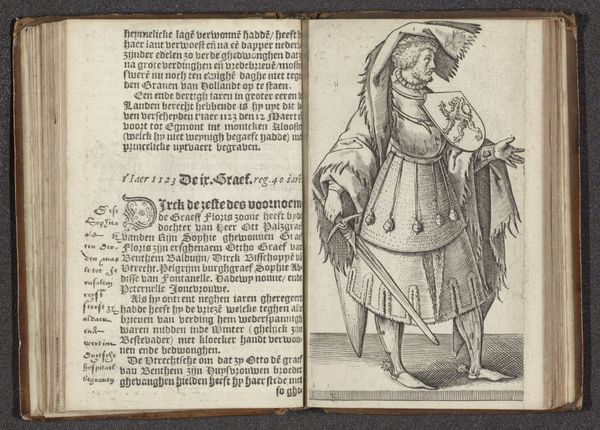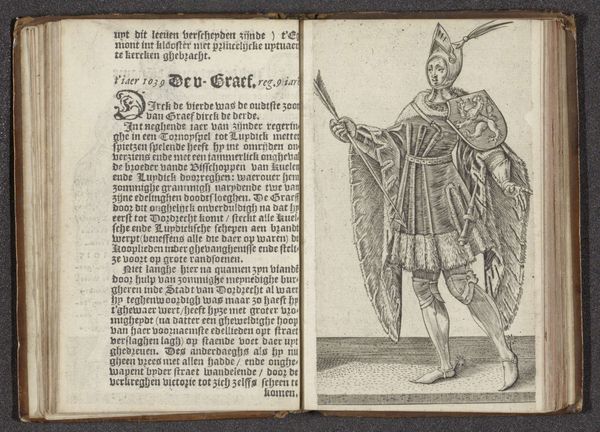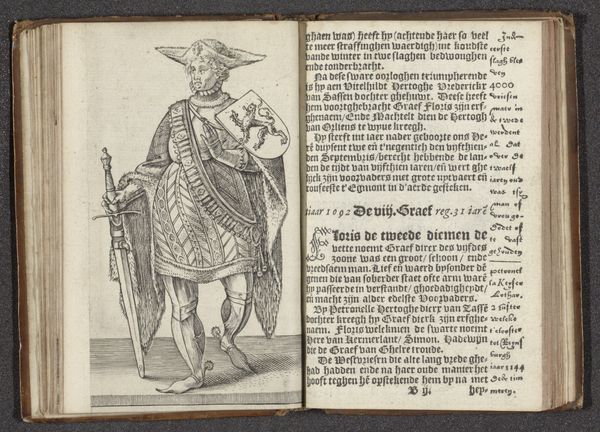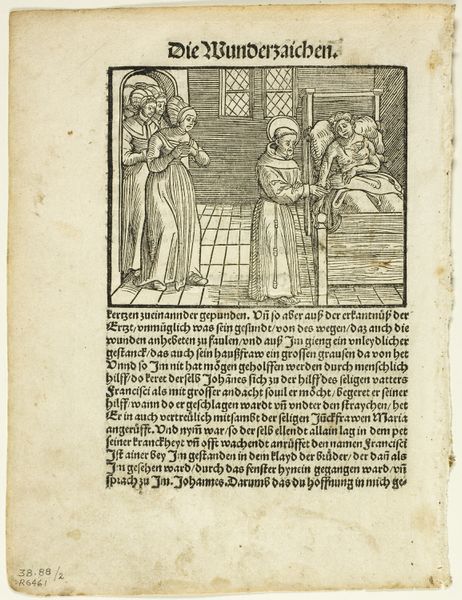
drawing, paper, ink, pen, engraving
#
portrait
#
drawing
#
aged paper
#
toned paper
#
sketch book
#
figuration
#
paper
#
11_renaissance
#
personal sketchbook
#
ink
#
journal
#
ink colored
#
pen work
#
sketchbook drawing
#
pen
#
storyboard and sketchbook work
#
northern-renaissance
#
sketchbook art
#
engraving
Dimensions: height 135 mm, width 85 mm
Copyright: Rijks Museum: Open Domain
Hendrick Goltzius created this small print, Gravin Geertruida van Saksen, sometime around 1600, using an engraving technique. Look closely, and you’ll see how the design is built up from thousands of tiny cuts into a metal plate. Ink was then applied to the plate, and then forced into the grooves. Paper was then pressed against the plate in order to lift the ink and create the print. Engraving allowed for the relatively easy reproduction of images, fueling the early development of a mass media. This particular print, likely from a book, depicts a noblewoman and her child, but the true subject here is status. The graphic language communicates the wealth and power of its subjects. Details such as clothing, jewelry and heraldry are meticulously rendered, all by hand. The fine lines suggest the amount of labor involved, and the skill of the artist, which in turn reflects the affluence of the people commissioning the work. Prints like these remind us that even seemingly simple images can be deeply entwined with social and economic forces. They point to a time when handcraft and mechanized reproduction began to intersect.
Comments
No comments
Be the first to comment and join the conversation on the ultimate creative platform.
